#haunted mountain
Text
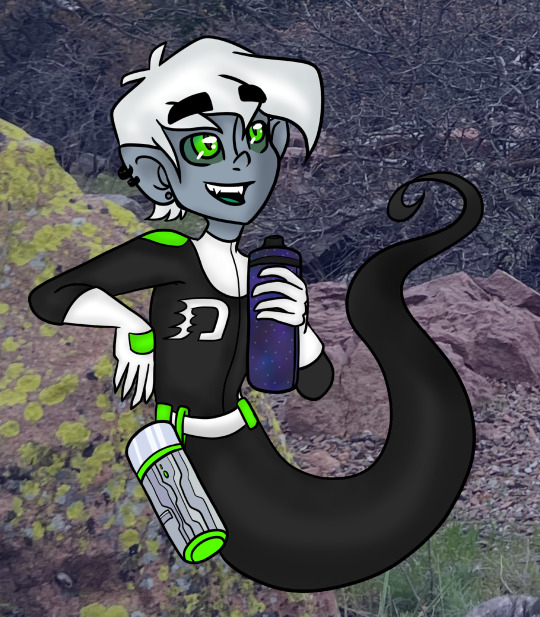
After a long fight, he likes to stargaze on the top of mountains

Wonderful lineart by @thestarsofpines
#danny phantom#danny fenton#greenwithenvy2024#stargazing#haunted#haunted mountain#mountains#irl background#fenton thermos
20 notes
·
View notes
Text
The Haunted Observation Post Rock in War Torn Afghanistan
Strange lights and sounds have been reported on from the war ridden Observation Post Rock. Remains of Russians, Taliban and perhaps even older groups of soldiers have been found in the ground that perhaps still are haunting the place.
Strange lights and sounds have been reported on from the war ridden Observation Post Rock. Remains of Russians, Taliban and perhaps even older groups of soldiers have been found in the ground that perhaps still are haunting the place.
In the Helmand Province in Afghanistan there are more than the living that patrol the observation point as paranormal sightings have been seen around these parts…

View On WordPress
#afghanistan#article#asia#featured#haunted mountain#haunting#military#soldier#soviet afghan war#taliban#war
7 notes
·
View notes
Text
youtube
I couldn’t sing a high note or put on my shoes
Without remembering you
I don’t care what they say about the workers in song
I’m gonna call it love
#jolie holland#2000 miles#this fucking song#current jams#haunted mountain#i have been waiting so long for a new jolie holland album#and this one is probably my fave of hers since#the living and the dead#which is 15 years old now#plus this one is a collaboration with buck meek of big thief!#lyrics
2 notes
·
View notes
Text

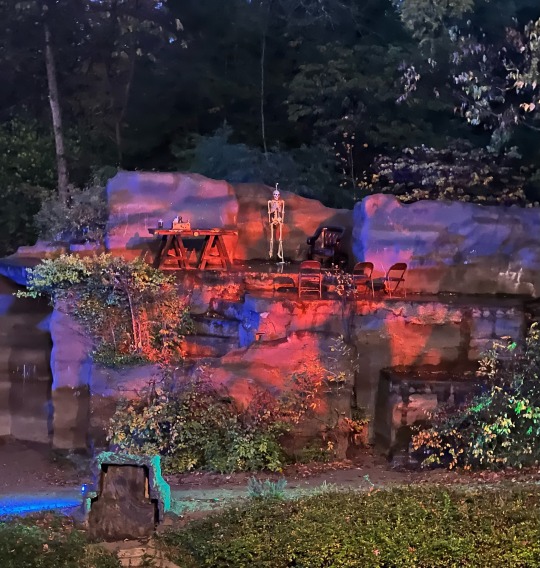
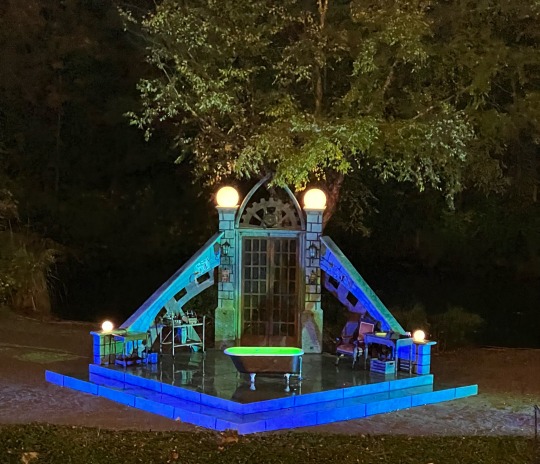
I got to see a play!
2 notes
·
View notes
Text
youtube
Big Thief’s Buck Meek Announces New Album Haunted Mountain, Shares Video for New Song: Watch
Buck Meek, the singer-songwriter who plays guitar in Big Thief, has announced his new album. The follow-up to 2021’s Two Saviors is called Haunted Mountain, and it’s out August 25 via his new label home, 4AD. The title track was co-written with Jolie Holland, who co-wrote five of the album’s 11 songs. Watch its new Riley Engemoen–directed video below.
Meek is joined on the album by guitarist Adam Brisbin, drummer Austin Vaughn, pedal steel player Mat Davidson, bassist Ken Woodward, and Meek’s brother, Dylan Meek, who plays piano and synthesizers. The album was produced by Davidson and recorded and mixed by Adrian Olsen. “The music here is an expression of a group,” Davidson said in a statement. “I asked for the job because I felt strongly that we shouldn’t bring in someone from outside the band. Otherwise, the only personal desire I had was that we be able to explore space, that we let the music open up and slow down in contrast to previous records—not in terms of tempo but rather overall movement, information between the beats.”
#Buck Meek#Big Thief#Haunted Mountain#Riley Engemoen#folk#pop#affas#affaires a suivre#affairesasuivre#alternative#pitchfork#2023#Youtube
2 notes
·
View notes
Text

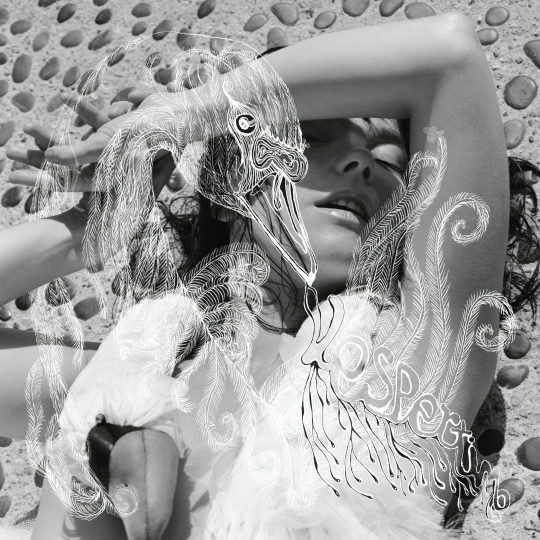
Album cover parallels: Buck Meek - Haunted Mountain (2023) and Björk - Vespertine (2001)
6 notes
·
View notes
Text
Jolie Holland Interview: Refractive & Layered
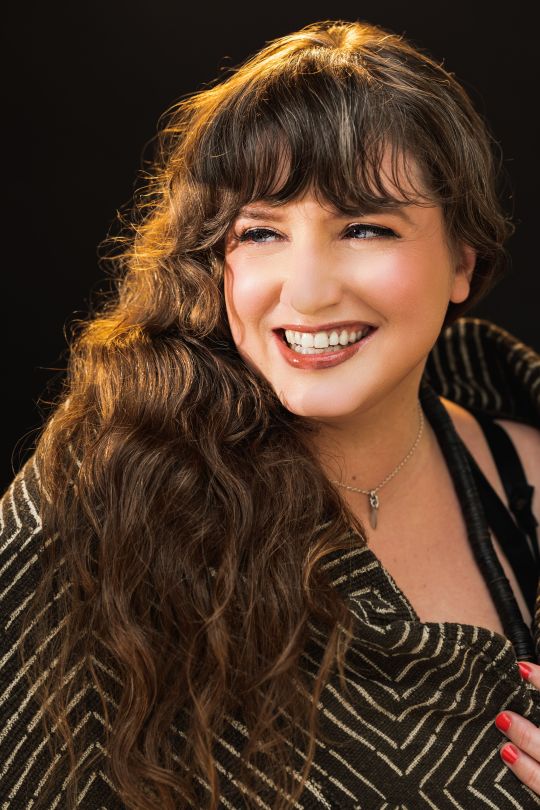
Photo by Chris Doody
BY JORDAN MAINZER
When I called Jolie Holland last summer to talk about her then-upcoming new album Haunted Mountain (Cinquefoil), the LP had just arrived. Lying in her house was, in her words, "a mountain of Haunted Mountain." She had just finished boxing up a limited edition vinyl of her debut album Catalpa, sent to her supporters on Patreon, and a friend was coming over later in the day to help box up some more vinyl. The DIY and direct-to-consumer approach suits Holland and is certainly consistent with the themes of Haunted Mountain, an album that at times looks back at Holland's earliest years and contextualizes them within society's current fights against capitalism and the patriarchy.
On Haunted Mountain, you can hear battles in every aspect of Holland's experiments. Take the spacious electronica of "Feet On The Ground", its deep bass groove and panning, skittering beat tangling with Holland's soulful vocal and whistling, and buzz-saw guitars that cut in and out. On the surface, its lyrics recall protest, but to Holland, it's her first "anti-patriarchal dance" song, using bodily movement as a means to a more just end. Piano ballad "Orange Blossoms" lays side-by-side natural imagery and soundscapes to chide human effect on climate change while being careful not to delve into the world of self-righteousness or eco fascism. "Every single soul on this spinning globe / Is captive to this dick measuring contest," she quips with her trademark smoky, jazzy vocal. The galloping Buck Meek duet "Highway 72" references Holland's experience as a homeless teenager, piercing violin rubbing against gentle acoustic guitar, pedal steel, and Mellotron, the sonic manifestation of the daily struggle to live on the streets. The song uses the Nyabinghi rhythm, named after an anti-colonial Rwandan freedom fighter, Holland's subtle way of connecting the fights against colonialism and austerity.
It's no coincidence that Holland's first album in years came as her creative relationship with Meek flourished. She first met him at the Park Slope Food Coop, where they both worked. "The stairs to the office are lined with cheesy personal advertisements of people offering different services," Holland said of the Coop. "It feels like a college campus in the 90's." She decided to advertise songwriting coaching and music lessons, and Meek saw it and decided to get in touch, as he was a fan of her music. The rest, as they say, is history: Holland bared witness to Meek's burgeoning relationship with Adrianne Lenker, the formation of Big Thief, and both his and his brother Dylan's resulting success.
Yes, it was a coincidence that in 2023, both Holland and Meek released albums named Haunted Mountain. Holland co-wrote five of the songs on Meek's album, including its title track, a tribute to active volcano Mount Shasta. Guitarist Adam Brisbin, whom Holland introduced to Meek, plays on both records. Yet, that both albums deal with "reciprocity with nature"--a phrase Holland said that Meek used to contextualize his title track--and a sort of cosmic telepathy is a tribute to Holland and Meek's intertwined creative partnership. Right now, Holland is getting ready to tour the UK and EU in March and April. Read our conversation below, edited for length and clarity, about Haunted Mountain, working with Meek, nature, protest music, and conversational songwriting.
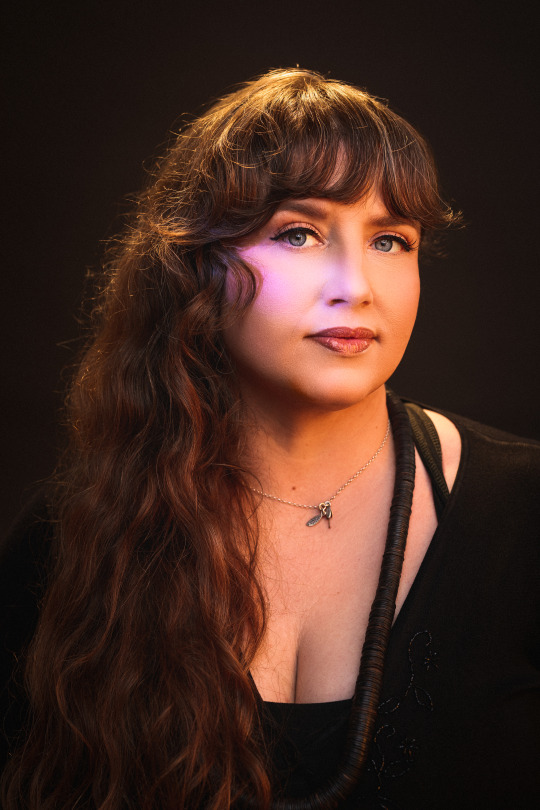
Photo by Chris Doody
Since I Left You: This cosmic collaboration between you and Buck is years in the making.
Jolie Holland: I was super charmed. We've known each other for over 10 years. I love writing songs with him. We've never done it in person--it was just literally texting and videos that we sent each other.
SILY: On "Mood Ring" from his album, he sings about telepathy. Even if he's singing about it from a romantic standpoint, that he titled the album the same thing is even further coincidence.
JH: He didn't know I was naming my next record Haunted Mountain. I always was. I never questioned it. It was this very simple vision for me. It's such a straightforward thing to name a record after a song and clearly, it's a very evocative title. Who knows what it means? I don't exactly know what it means. It has this nice refractive multi-faceted character. It's also a soft rhyme that has a nice rhythm to it. It was unquestioned to me that was gonna be the title.
There was a similar thing going on in Buck's circle. He kept coming up with different names for his record, but everyone in his circle was calling it Haunted Mountain. They assumed that was the name. He thought, "This isn't moving. Everybody is into this." He sent me this extremely thoughtful email that explained the process. He said, "Can I name my record after your song, [but] only if you're not going to name your record the same [thing]?" I said, "Yeah, well I am [naming it Haunted Mountain]." It only took us a few hours to come around to the fact that [the coincidence] was awesome. [laughs]
SILY: He sings about the idea of "reciprocity with nature" on his title track, a humbled relationship with it, and so do you, especially on "Orange Blossoms". Can you talk about your personal relationship with nature and singing about it?
JH: I said that phrase, "reciprocity with nature," and then I completely forgot having said it. Buck was texting me, "What was that you said? Something about something with nature? What was it?" We finally both remembered my having said it.
Are you an Indigenous person?
SILY: No.
JH: Me neither. My grandmother had a Choctaw last name but wasn't tribally affiliated. She had a family background of being Indigenous. They lived in New Orleans. She was Black and French, and the spelling of her last name is typically only Choctaw. When I was a kid, she told me in a very strong New Orleans accent, "I'm half Black, half French, and half Indian. That makes me Cajun." It's some ridiculous shit. Did you read Braiding Sweetgrass?
SILY: No, but I'm familiar with it.
JH: It's so beautiful. It's written by an Indigenous botanist named Robin Wall Kimmerer. The audio book is so...gorgeous, hearing the cadence and the weight of meaning in her voice. I haven't even finished the book. It's very, very long, 15 hours or more. I've just dipped my toes in. But she tells this incredible story of being a young botanist student. She had this hypothesis that traditional harvesting methods were positive for propagating certain plant species. Her professor, who was not Indigenous, was not into the idea of her doing this experiment. He said, "That's clearly wrong. How could human behavior be good for these plants?" She did the experiment and proved that traditional harvesting practices were positive overall for the plant. There are these intensely unanalyzed perspectives in European and settler culture that humans are a curse on nature. It has so many deep repercussions.
I reference that Malthusian perspective on the record. There's a voice of nature on "Orange Blossoms" that says, "We throw this party every year whether or not you motherfuckers are around." [The line is, "We throw this party every year / Whether or not you humans are here."] [laughs] It's talking about spring. But that's a real settler colonial European attitude, that humans are not part of nature. It's obviously ridiculous. It's just a philosophical conceit.
SILY: Your references to fascism in that song are interesting. It reminded me of the very online debate during COVID about people staying inside and "nature healing" being an ecologically fascist point of view.
JH: I heard the line, "Every superhero is a fascist," through leftist comedians, Francesca Fiorentini and Nato Green. I found many examples of that analysis. There's a great couple chapters in the book The Utopia of Rules by David Graeber where he gets into that idea. He was friends with a lot of my friends, but I never met him. He died of COVID complications. His biggest macro-cultural hit was the book Bullshit Jobs, and before he passed away, he wrote The Dawn of Everything, which is extremely wonderful. He's an anthropologist, and the person he cowrote the book with, David Wengrow, is an archaeologist. They did an enormous global analysis of the systems of democracy and social organization that are not authoritarian. It's brilliant. I think it's going to be really important tool moving forward. It resets the picture on a lot of things.

Photo by Chris Doody
SILY: Do your views on colonialism and nature jive with the anti-colonial bend of "Highway 72" as well?
JH: Why do you say it's anti-colonial?
SILY: I thought the juxtaposition of imagery in the line, "Great-horned owl slipping by the overpass / I feel like every year might be my last," was referential to systems of oppression constantly threatening to kill us. Is that song auto-biographical?
JH: [laughs] Yeah, I was a homeless teenager, and there's a lot of imagery of that time in my life in that song. My friend called it an anti-colonial hymn because the rhythm, Nyabinghi rhythm, is an anti-colonial rhythm. It's named after the Rwandan female military leader. I've loved that rhythm for a long time. There's this movie Land of Look Behind made by Alan Greenberg, who was a cinematographer who worked with Werner Herzog. He was friends with Bob Marley and happened to be visiting him when he died. There's all this beautiful footage of Marley's funeral and footage of backwoods Rastafarians hanging out and playing music. There's a band Keith Richards produced called Wingless Angels, and it's some of my favorite gospel music. It's so moving to me. It's been an important part of my musical vocabulary for 20 years. I forget how deeply embedded it is in my way of thinking about music. One of my best friends, one of the first people to hear the record, said something so beautiful about the rhythm: "It's slower than my grief." I said, "Wow, I don't know what you're talking about, but I love it!" [laughs] I think he was trying to say it helped him move through a certain healing process.
I looked up the beat because I wanted more concrete information about it. I forget anything I've learned about it because I've been into it for so long. Keith Richards said something so amazing about it: "It's purposefully slower than your heartbeat." [I thought,] "Is [my friend's] experience of the song related to Richards was saying about it?
SILY: It requires an active participation or listening.
JH: What do you mean by that?
SILY: When something is that slow, it can't be experienced passively. To stay engaged, you have to commit to it.
JH: That's interesting. It's like Bob Dylan getting really really quiet when the audience is loud.
SILY: Definitely similar. I was intrigued, though, when you were just talking about the relationships between humans and nature, because the song is about you living outside.
JH: More and more of us experience that as capitalism fucks us up. [The song isn't about homelessness, but] about [my] experience of homelessness. A lot of people look at me, clearly a fucking intellectual, and they think I went to college and had a family. I'm a white lady, so there are assumptions about my socioeconomic background. They're wrong! [laughs] I didn't want to be taken as a ghoul, bloodlessly discussing so-called social problems, looking at it from an external viewpoint.
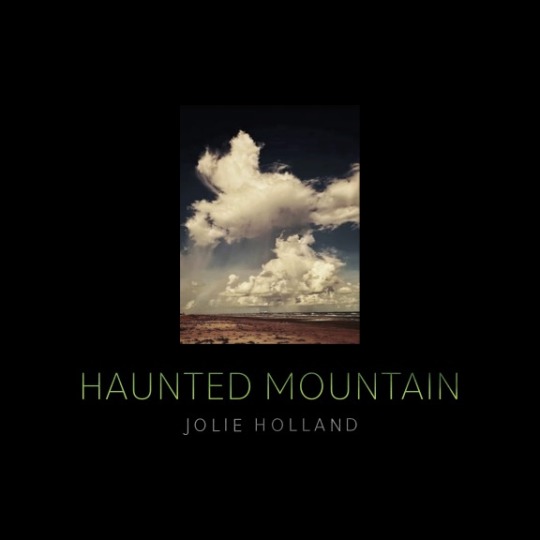
SILY: "Feet On The Ground" seems to be describing the relationship between protesting and activism and our emotions.
JH: That's interesting. It's not. But I like your analysis.
SILY: The line I highlight is, "When you've taken all that you can handle / Every act of tenderness is a frightful gamble." What does that mean to you?
JH: I've been working on this project of trying to make anti-patriarchal dance music, and this is the first [song]. It's more about interpersonal relationships. It's very inside-out. It's from deep inside of relationships with men.
SILY: Which is a political statement in and of itself, inherently.
JH: Totally. I love that you saw it that way.
SILY: Have other people heard the song without knowing what it refers to and interpreted it other ways?
JH: My friends who have heard it have been overwhelmed by the production. I was really excited to talk with people about what it means, but everybody I've played it for, Buck included, have thought it's such a crazy soundscape.
SILY: Somewhat of an anomaly for you.
JH: It's my first dance track...It's listed as a different genre.
SILY: What's your relationship with The Painted Bird, and why did you frame "One Of You" around that book?
JH: Have you read that book?
SILY: No.
JH: Don't read it! It sucks! [laughs] It's so fucking intense.
SILY: It's one of those books where I haven't read it, but I'm very familiar with the discourse around it.
JH: I read The Painted Bird when I was 13. I didn't know what it was. How could I have? I don't even know where I found it. Probably in the library, or I borrowed it from one of my mom's friends. It's the story of a little blond-haired Jewish boy walking out of rural Poland in the aftermath of WWII, who encounters repeated creepy atrocities. There's a lot of sexual violence in the book, which I really wish I hadn't been exposed to as a child. The central image in the book is when the kid sees these country boys that capture a bird and paint it in these bright colors and release it back, and the flock kills it.
SILY: Because they think it's an intruder.
JH: It's this extremely visceral metaphor for genocide and the process of othering. "Feet On The Ground" and "One Of You" were kind of the same idea for a minute. It was really hard to write "Feet On The Ground" because in one sense, it's protest music, but I'm not interested in writing protest music that's accusatory. I want to write music that actually gives people an ability to consider things from a more basic level than just an oppositional state. That's always been my criticism of oppositional protest music. If it's just accusatory, the person being accused is not listening to the music. I totally value a lot of music that is accusatory and is that kind of typical punk rock anthem-type stuff, but I've [long] been interested in how to write in a different way. Daniel Johnston was a big influence in moving in that direction. He's somebody I think a lot of people wouldn't naturally identify with, somebody with mental illness. But he presents himself in a way where it's impossible not to identify with him.
"Feet On The Ground" is based to a degree on that William Onyeabor song "Better Change Your Mind". Another discursive protest song I found amazing is, "Can't Blame The Youth" by Peter Tosh.
SILY: Accusatory protest songs, in my experience, exist more as cathartic than wanting to make actual change. They serve that purpose, even if delivered to an echo chamber. However, I was listening to the latest Bully album, and the final song, a punk song called "All This Noise", is what you think of when someone says, "protest music," but the song before that, "Ms. America", is much quieter and has a basic premise of, "I want to have a kid, but I don't want to teach a kid how to fight." It turns protest feelings inward. I found it to be a more effective protest song due to it eliciting more empathy than what you would think of as typical protest music. Is empathy a part of what you're trying to achieve?
JH: What do you mean by empathy?
SILY: When you look inward a bit more in your protest songs, essentially, you're trying to uncover some more universal truth that other people can identify with, as a means of making change, rather than being accusatory.
JH: Do you mean empathy with the people you're trying to change?
SILY: With anyone listening.
JH: Probably. I'm definitely not interested in preaching at people, so it's about talking with the people listening and trying to be part of a bigger conversation with anybody who might be on board, as opposed to something intended to be strictly cathartic and outwardly directed.
SILY: "Me and My Dream" references some legendary songwriters. Can you talk about the weight that carries?
JH: I always loved the songs of Lou Reed's where he's referencing his friends. We don't even know who these people are. "'Margarita told Tom,' 'Kennedy says.'" Those aren't famous people. Those were his friends. Or maybe they were famous. It doesn't matter in the song. It's so beautiful. I remember when he talked about his orientation with writing lyrics, he wanted it to sound like the kind of things he wanted to say to his friends. An interpersonal conversation. I love lyrics like that. This was me approaching that idea. I'm always thinking about other artists' work and the ways it affects me and how I respond to it. Blind Willie Johnson, [Tom] Waits, and Richards are the namechecked artists, but I also reference Betty Davis' "I Will Take That Ride".
SILY: What's the story behind the cover art?
JH: I love this artist Jo Bird. She's a metal viola player I know from Houston. She has a band called Fiddle Witch. She moved from Houston to Galveston, which is the beach I grew up with as a child where I got sunburnt to fucking hell. Another one of my songs, "June", on Pint of Blood, talks about imagining mountains out of clouds. I grew up in the fucking swamp with no mountains, but the sky is incredible with cumulus clouds and rainbows and thunderstorms and tornadoes. I loved seeing her pictures all the time, how this goth photographer gets these scary pictures of the beach. [The cover] was a picture she took on her iPhone. We had to use some magic to get it big enough to use on the cover. We still chose to keep it kind of small so we didn't have to distort it to get a good image of it.
SILY: What instrument do you write most of your songs on?
JH: I write most of them in my head. I don't want the music to be limited by whatever I know or don't know instrument-wise.
SILY: Do you find adapting them to a live performance a totally different artistic endeavor than writing and recording them in the first place?
JH: No, it's all really creative and an opportunity to see different stuff in the music. We've been playing "Haunted Mountain" a lot of different ways. One way we've been doing it is synth, bass, viola. I love how it breaks down to just the elements. I love presenting songs in a lot of different settings.
SILY: Are you the type of songwriter who is always writing, or do you need to set aside time to sit down and write?
JH: I'm always collecting ideas, but I do need to sit down to make them come all the way through. I woke up and wrote some lines a couple mornings ago, which is great, because I'm so busy with everything else that it starts to feel weird to not have time to write.
SILY: Is there anything else upcoming for you?
JH: I put out Catalpa on vinyl in an extremely limited release that I offered to my Patrons. I'll do [a wider] re-release. It was never mastered at all, let alone for vinyl. Larry Crane, the editor of Tape Op, an awesome engineer, prepared the files. [The originals are like] a sketch on a cocktail napkin. They're made out of pure garbage. Larry's colleague Adam Gonsalves mastered them. They sound incredible. Adam mastered Haunted Mountain and Escondida for vinyl. I've been working with him for a while. My friend Jason Tavares, who runs a hi-fi Shop, listened to Catalpa on a hundred-thousand dollar system and said it sounds amazing.
I wish people had access to better systems. So many people don't even have a record player. I didn't even have a decent record player until I moved to L.A. 10 years ago. Before that, I was moving around so much, so it didn't make sense. Larry Crane played bass for Elliott Smith and did similar work for his shittier recordings, turning them into something that could take production. He's such a fabulous nerd and knows all the new things. He happened to hear those recordings of Elliott's while out and about, and said, "I would have done it differently now." He learned a lot of stuff before Catalpa, so I'm glad to hear Jason said it sounds good.
SILY: Did you start a Patreon over COVID?
JH: I did. I couldn't figure out how to access unemployment and was real fucked. I was about to go on tour in February 2020, so it was great to get into Patreon. I did something super gimmicky the other day that people fucking loved. I said, "I'm going to release a Tom Waits cover every week until I reach this many patrons." People responded to it so fast I had to keep moving that number until it made sense. It's been interesting engaging with people on that level. I'm glad there's platforms like that. Marc Ribot helped start Music Workers Alliance, and they did an analysis that streaming has taken 20 billion dollars a year out of artists' pockets, [so] it's great we have these direct support systems [like Patreon].
youtube
#interviews#jolie holland#buck meek#haunted mountain#chris doody#cinquefoil#patreon#park slope food coop#adrianne lenker#big thief#dylan meek#mount shasta#adam brisbin#braiding sweetgrass#robin wall kimmerer#francesca fiorentini#nato green#the utopia of rules#david graeber#bullshit jobs#the dawn of everything#david wengrow#land of look behind#alan greenberg#werner herzog#bob marley#keith richards#wingless angels#bob dylan#the painted bird
0 notes
Text
Jolie Holland's “Haunted Mountain”
0 notes
Text
Jolie Holland
Haunted Mountain (2023)
… originality …

0 notes
Text
Buck Meek — Haunted Mountain (4AD)

Photo by Shervin Lainez
Haunted Mountain by Buck Meek
In Big Thief, Buck Meek plays second fiddle to Adrianne Lenker, rarely stepping out of the shadows. He’ll occasionally fire off some coruscating guitar noise or harmonize sweetly with his former wife, but Big Thief is very much a vehicle for Lenker’s formidable songwriting. On 2021’s excellent Two Saviors, it became clear that Meek has his own distinct songwriting voice, with a more straight-ahead country-leaning flavor. On his third album and 4AD debut, Haunted Mountain, produced by Twain’s Mat Davidson, Meek leans further into these tendencies, for better and worse.
The album’s finest songs are sequenced in the first half, with glowering opener “Mood Ring” sounding quite unlike anything else on offer. Propelled by an incessant shaker and a disorientating chord progression with prominent bass, the song bursts forth at its climax with glitchy processed piano. The title track is a more traditional country-rock tune, distinguished by eerie harpsichord arpeggios, pedal steel, and a sizzling fuzz-tone guitar solo. “Cyclades” makes a surprising and satisfying shift between its doomy main riff and jangly, major-key verses, topped off with a singalong chorus: “There’s too many stories to remember / Too many stories to tell.” The second half’s “Undae Dunes” is similarly blistering, the band leaning into their rockier tendencies.
On the album’s slower numbers, such as “Paradise,” “Secret Side,” and “Didn’t Know You Then,” Meek indulges his romantic impulses. This shifts the focus onto his love-struck lyrics, which can’t help but come across as a little sappy. Backed by twinkling music-box guitars, a line such as “I knew the moment that I saw you that my life would never by the same” feels too sugar-sweet to resonate. The musical chemistry evident among Meek’s band of talented players thankfully overpowers this tendency for the most part.
Tim Clarke
0 notes
Text
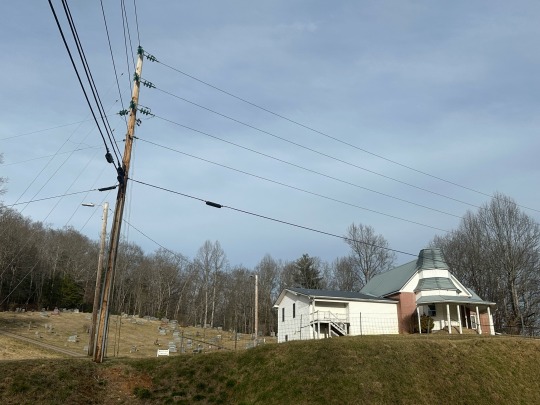
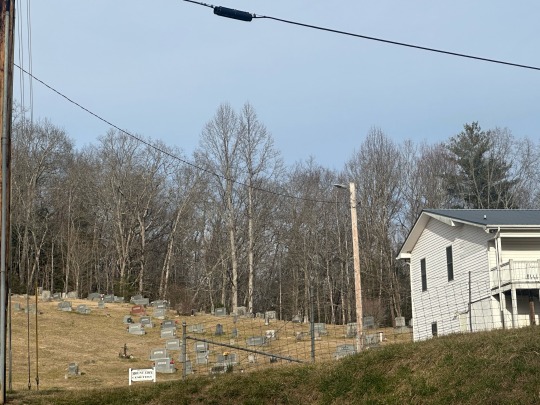
i’m made of waste
#ghost mountain#haunted mound#sematary grave man#southern gothic#appalachian gothic#liminalcore#photography#mine#rurex#cemetery#religioncore#relgiouscore
737 notes
·
View notes
Text
The Darkness of Slaughter Falls in Mount Coot-tha Forest
Although found in Sunny Brisbane, Australia, it is said to be a darkness surrounding Slaughter Falls in the Mount Coot-tha Forest. Many violent happenings occurred and many rumors of it being haunted follows.
At the foot of Queensland’s Mount Coot-tha Mountain and forest, the very name “Slaughter Falls” sends shivers down the spine for a reason. Despite it’s ominous sounding name Slaughter…

View On WordPress
0 notes
Text
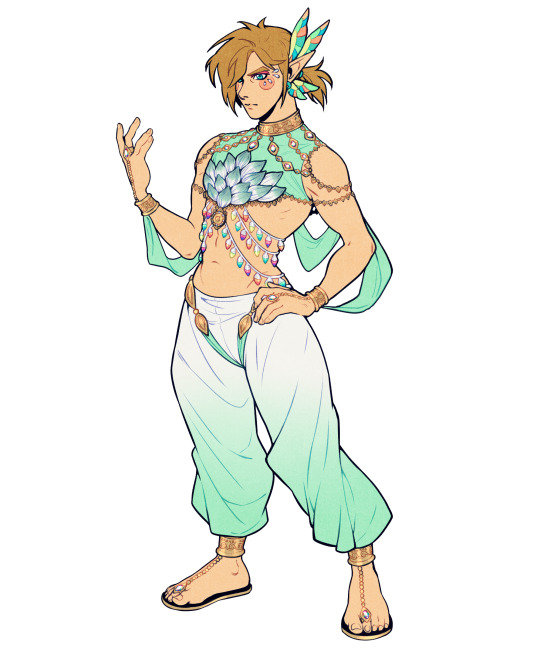
posting an old piece over here.
since botw was the first zelda game i ever played, when i saw "fairy clothes" offered in the dlc, i had pictured something like this
i've decided they're 6 total defense and when worn together offer "Perfect Climate" so you get lvl 1 heat+cold resistance everywhere.
#the tingle set being named that still haunts me how dare#botw#breath of the wild#link#sandflakedrew#my link climbs mountains all day and he can & will eat anything#oh and them canon hips are stayin in there#if i could draw it over i'd change some things but eh. still a good nough drawing
11K notes
·
View notes
Text
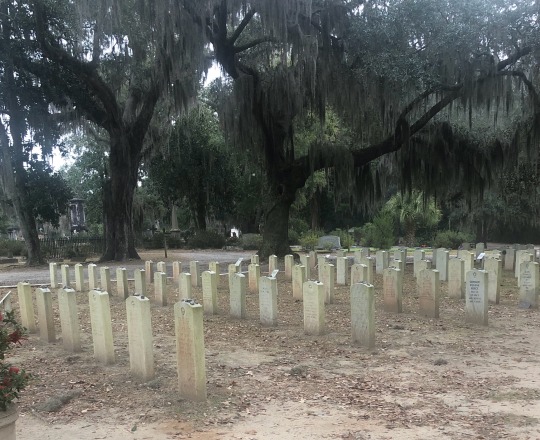
#🌫️#mine#my pictures#graveyard#sematary#haunted mound#american gothic#gothic#southern gothic#ghost mountain#witchouse#hauntaholics#rural gothic#s4lem
950 notes
·
View notes
Text
Danny moved to Gotham.
Freakshow is touring in Gotham.
Freakshow knows Danny is in Gotham.
Danny knows Freakshow is still after him.
Danny's faith in heroes has been shattered.
Danny turns to the only person powerful enough to run Freakshow out of town, hopefully for good.
Danny turns to the Joker for help.
The Joker is looking for a new punching bag sidekick after Harley Quinn left him.
Danny is just the perfect person to be shaped by the Joker's hands.
Danny becomes the new Joker Junior.
#pondhead blurbs#dpxdc#how we feeling about this fellas#i think it's an ideal angst fic#but i don't wanna write it lol#the younger danny is the worse it gets#someone said that danny shouldn't be afraid of the joker because he's a clown and freakshow is a ringmaster. not a clown#if i find that post i'll tag the creator cause i can't remember rn#but i'm imagining danny who is heavily traumatized and scared and lonely#finding out that one of his worst enemies he hoped to never see again is hunting him and is so close danny has to check his eyes every day#just to make sure they haven't turned red#his anxiety is out of control and he's not about to go find a Bat or Bird to talk to#who would believe him anyways? he's a monster#but danny needs help cause he will not survive this on his own and he knows it#freakshow haunts his every waking dream#but freakshow isn't from gotham. he doesn't have the city's curses engraved into his blood. he never died and he's not truly teasing death#so danny chooses to plead for help from the only predator bigger than freakshow (in his eyes) who IS from gotham#danny goes to the Joker. prepared to offer everything but his free will and free mind. he can't give those up. it's all he has.#danny is a feral house cat asking a tiger to take care of a mountain lion for him by offering the tiger his own liver on a silver platter#joker is...delighted? maybe? no one is quite sure. but he takes what danny offers.#here is this little boy. almost the same age as the second robin when he died. pleading for the JOKER to be his savior. this will be fun
492 notes
·
View notes